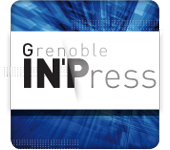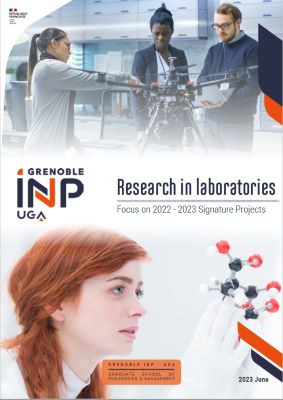Millennium, which specialised from the outset in nuclear engineering, is today recognised for its advanced expertise in the field of risk management. We interviewed Bruno LANCIA (director of NUVIA France), Eric LEJEUNE (director of Millennium) and Valérie BUSO (head of recruitment).
1/ What do you think are the current and future key industrial issues in the nuclear sector?
The issues facing the nuclear sector are manifold, and are different in France and abroad but with a common challenge: the safety of installations.
According to a recent study by the Strategic Committee for the Nuclear Industry, the sector in France now has 220,000 employees, including 125,000 direct jobs. The population pyramid (and in particular employees scheduled to take retirement), together with the need to retain expertise in this field, means that almost 50 % of the workforce has to be replaced.
This same dynamic, which has now been on-going for two years, is going to continue until 2017, and represents a highly significant stream of new jobs.
The nuclear industry is, and will continue to be, a promising sector for young graduates in very different areas.
Overseas, notwithstanding the accident at Fukushima, the nuclear sector is continuing to expand in spite of the fact that a handful of nations have decided to call time on the industry, primarily in western Europe (Germany and Italy). In contrast, many countries are still investing in this type of energy, such as China, Russia, India, Turkey, Finland, the UK, etc. Of even greater interest, many countries have decided to establish a nuclear industry for the first time, such as the United Arab Emirates, Jordan, Vietnam, Poland, etc. This dynamic clearly shows that the nuclear industry is a promising sector with very high safety requirements that make it a network of excellence.
2/ As a specialist company recognised for its advanced expertise in controlling nuclear risks, Millennium hires engineers: what kind of training do they have?
We mainly hire graduates with Bac + 5 (five years of post-baccalaureate study) from engineering schools or university masters. Most of our staff are trained in nuclear engineering, physics and radiation technology, industrial risk management or nuclear safety, mechanics, etc.
This list is not exhaustive but, in overall terms, we target courses where the teaching is in line with our various professions: design, dismantling, nuclear calculations, safety, etc.
At Grenoble INP, the Phelma school constitutes a remarkable pool of potential recruits for our modelling activities / criticality calculations, neutronics, radiation protection and nuclear measurements.
In the years to come, we hope to sustain and continue to develop our expertise in the fields of safety and radiation protection in particular.
The fact that France's nuclear installations are aging also means there will be a need for a large number of studies on extending the service life of plants, to which we will most certainly contribute.
3/ What are the career opportunities in your company?
Our engineers can move towards technical expertise or project management, depending on their abilities and what direction they want their career to take. The post of technical manager requires at least eight to ten years of experience in a very specific field (such as safety, criticality, nuclear ventilation, etc.).
On the other hand, the move towards a project leader position can be quicker because this post calls on transversal skills (management of costs, deadlines and resources, customer interface, etc.) rather than in-depth scientific knowledge. Employees begin by running small projects before moving on to projects where the financial stakes are more significant.
In addition to Millennium, our employees can also develop their career mobility within the NUVIA group, which consists of six other companies: Essor, IPRS, Mécatiss, Nuvia Travaux Spéciaux, Salvarem and Vraco.
Each of these organisations has, over the years, developed specific expertise in the nuclear sector (operations / maintenance, civil engineering, dismantling, etc.), thereby enabling us to cover the entire life-cycle of installations and to offer a comprehensive service to our customers (mainly EDF, CEA and AREVA).
1/ What do you think are the current and future key industrial issues in the nuclear sector?
The issues facing the nuclear sector are manifold, and are different in France and abroad but with a common challenge: the safety of installations.
According to a recent study by the Strategic Committee for the Nuclear Industry, the sector in France now has 220,000 employees, including 125,000 direct jobs. The population pyramid (and in particular employees scheduled to take retirement), together with the need to retain expertise in this field, means that almost 50 % of the workforce has to be replaced.
This same dynamic, which has now been on-going for two years, is going to continue until 2017, and represents a highly significant stream of new jobs.
The nuclear industry is, and will continue to be, a promising sector for young graduates in very different areas.
Overseas, notwithstanding the accident at Fukushima, the nuclear sector is continuing to expand in spite of the fact that a handful of nations have decided to call time on the industry, primarily in western Europe (Germany and Italy). In contrast, many countries are still investing in this type of energy, such as China, Russia, India, Turkey, Finland, the UK, etc. Of even greater interest, many countries have decided to establish a nuclear industry for the first time, such as the United Arab Emirates, Jordan, Vietnam, Poland, etc. This dynamic clearly shows that the nuclear industry is a promising sector with very high safety requirements that make it a network of excellence.
2/ As a specialist company recognised for its advanced expertise in controlling nuclear risks, Millennium hires engineers: what kind of training do they have?
We mainly hire graduates with Bac + 5 (five years of post-baccalaureate study) from engineering schools or university masters. Most of our staff are trained in nuclear engineering, physics and radiation technology, industrial risk management or nuclear safety, mechanics, etc.
This list is not exhaustive but, in overall terms, we target courses where the teaching is in line with our various professions: design, dismantling, nuclear calculations, safety, etc.
At Grenoble INP, the Phelma school constitutes a remarkable pool of potential recruits for our modelling activities / criticality calculations, neutronics, radiation protection and nuclear measurements.
In the years to come, we hope to sustain and continue to develop our expertise in the fields of safety and radiation protection in particular.
The fact that France's nuclear installations are aging also means there will be a need for a large number of studies on extending the service life of plants, to which we will most certainly contribute.
3/ What are the career opportunities in your company?
Our engineers can move towards technical expertise or project management, depending on their abilities and what direction they want their career to take. The post of technical manager requires at least eight to ten years of experience in a very specific field (such as safety, criticality, nuclear ventilation, etc.).
On the other hand, the move towards a project leader position can be quicker because this post calls on transversal skills (management of costs, deadlines and resources, customer interface, etc.) rather than in-depth scientific knowledge. Employees begin by running small projects before moving on to projects where the financial stakes are more significant.
In addition to Millennium, our employees can also develop their career mobility within the NUVIA group, which consists of six other companies: Essor, IPRS, Mécatiss, Nuvia Travaux Spéciaux, Salvarem and Vraco.
Each of these organisations has, over the years, developed specific expertise in the nuclear sector (operations / maintenance, civil engineering, dismantling, etc.), thereby enabling us to cover the entire life-cycle of installations and to offer a comprehensive service to our customers (mainly EDF, CEA and AREVA).
SUMMARY
- Editorial : Jobs for at least 40 years!
- Preparing for the future of the nuclear industry
- The nuclear industry also needs more general profiles
- Why train engineers in nuclear energy?
- A promising future for professions in the nuclear sector
- Thorium: the green future for nuclear power?
- IFCEN: a project in support of the French nuclear industry
- The importance of materials in the nuclear sector
- First-hand account from Boris Supiot, an engineer at AREVA
- Millennium interview: Nearly 50% of the workforce needs to be replaced





